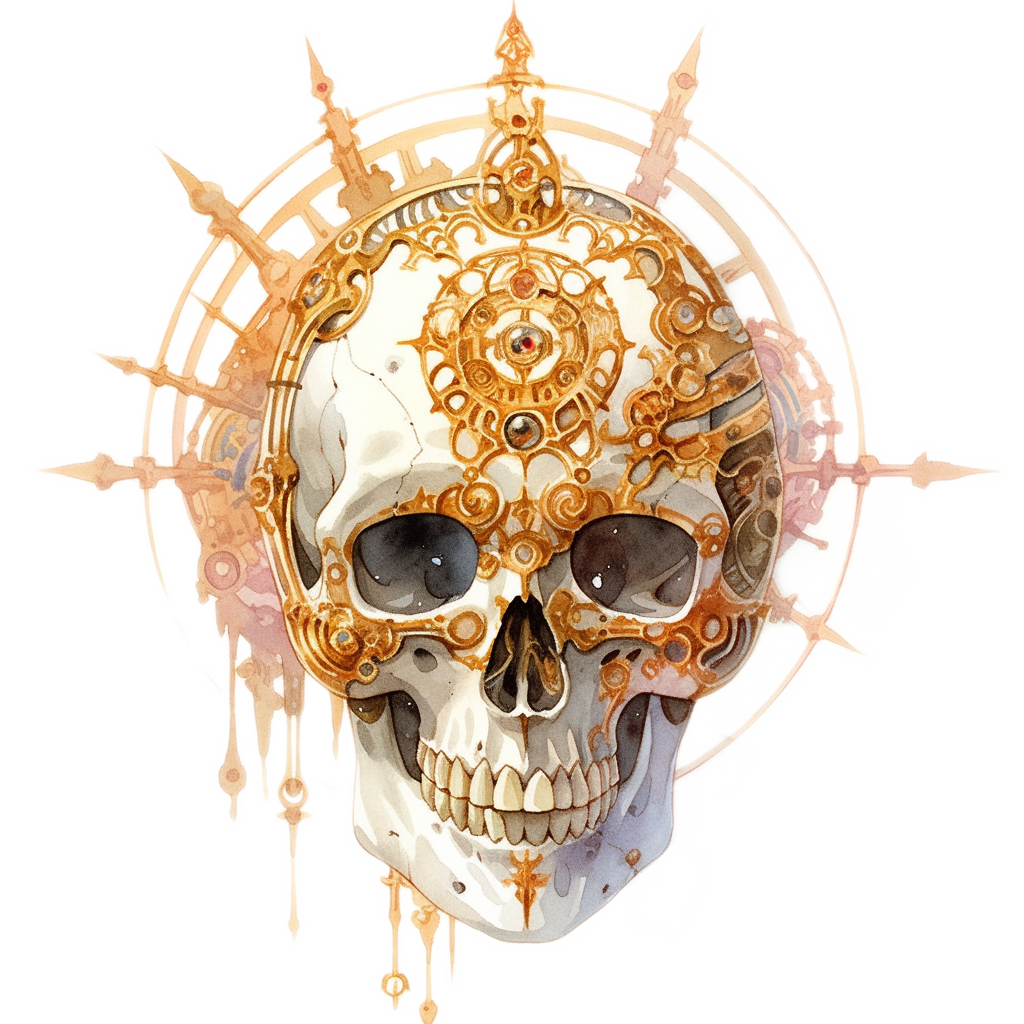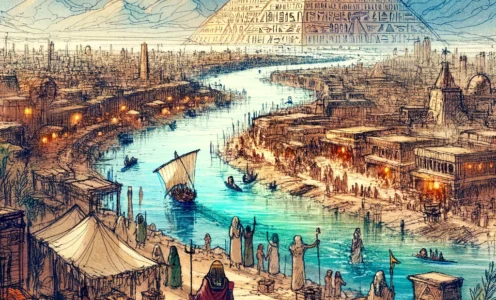Thoth’s Estate
Realm of Thoth
Location: Outlands / Ringlands
Thoth, the Egyptian power of wisdom and arbitrator of the powers, presides over this domain with a feather-light touch, ensuring that the strict cosmic balance of ma’at is maintained. His estate is a marvel of architectural splendours, from the ancient obelisks carved with the very first hieroglyphics that Thoth gave to his faithful when he taught them to write, to the giant carved sphinxes which watch over the holy sites, to the industrious burg of Thebestys which produces miles of papyrus, to his crowning glory, the Great Library.
The River Ma’at
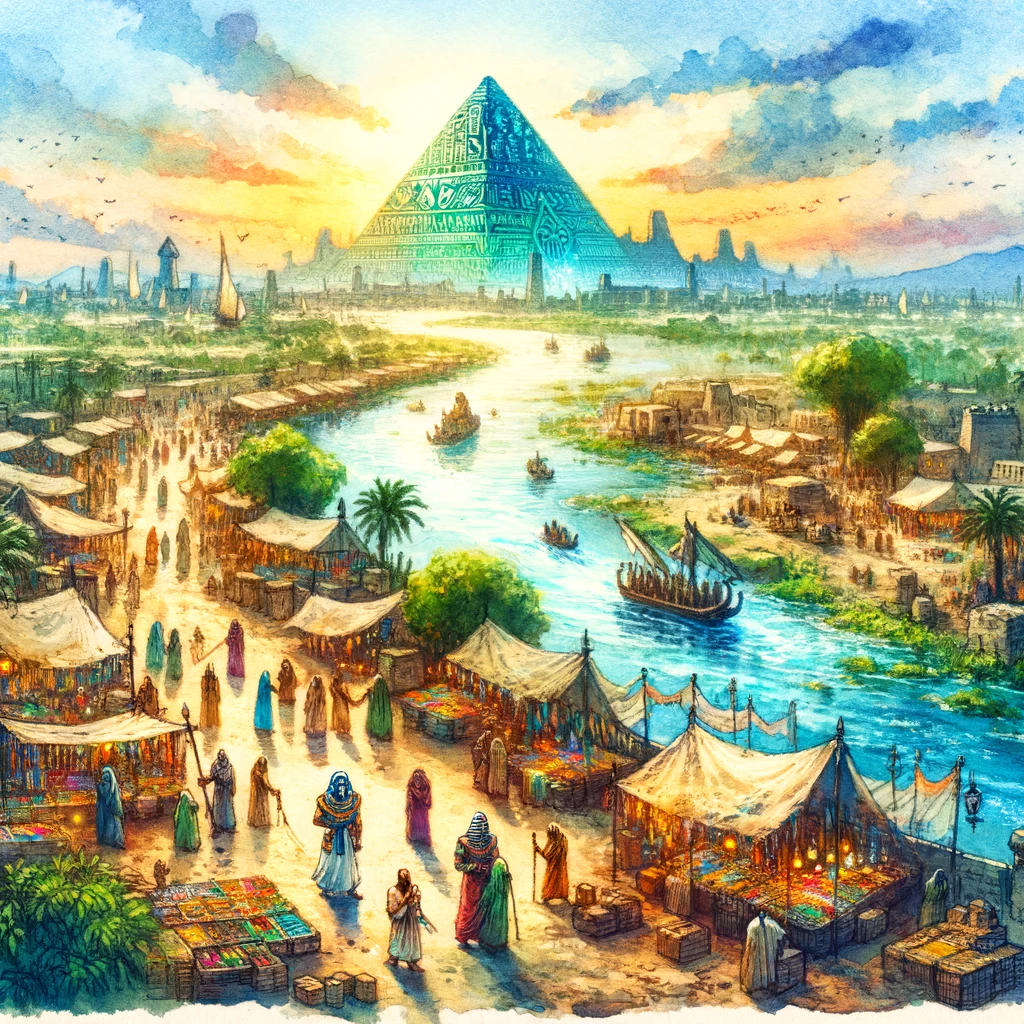
Rising out of Semuanya’s Bog and flowing through the heart of the Outlands is the River Ma’at, a lifeline that meanders across the realm of Thoth’s Estate like a lazy snake, then through the bustling burg of Thebestys. It then takes a turn towards the gate towns before evaporating in a shining salt flat. This ain’t a typical waterway, berk; it’s a river steeped in the very essence of balance and truth, the concept the Egyptian greybeards call ma’at. It’s water, sure, but it’s also something more. For the Egyptian petitioners who dwell on the Outlands, the river is for all intents and purposes, a goddess. She provides them with life-giving water, she irrigates the arid lands around allowing crops to be grown, she provides transport, a bounty of fish, a way to keep cool. She breathes with the seasons; once in every cycle, under the watchful eye of the power Hapi, the god of the floods, the River Ma’at swells with life-giving waters. This ain’t no disaster, but a cause for celebration among the locals and the petitioners alike, for the floods bring a bounty of fertile silt, enriching the lands along its banks. The stilt-houses and floating islands here are designed to withstand exactly these conditions. The plains near Thebestys turn into a verdant paradise, a stark contrast to the otherwise harsh landscapes of this arid part of the Outlands. During this season Hapi, a jovial and rotund deity with a penchant for festivity, wanders the banks, ensuring the floods spread their blessings far and wide.
The petitioners of this region are as varied as the grains of sand in the desert, but all share a reverence for the cycle of life, death, and rebirth that the Ma’at symbolises. Many were followers of the Egyptian pantheon in life, and now in the afterlife they continue their devotion, tending to the fields, celebrating the floods, and maintaining the balance between the desert and the waters.
Travellers to this region should be wary of getting lost in the beauty and majesty of the flood plains, and move to high ground when flooding season starts. The River Ma’at, while life-giving, can also be unpredictable. The waters sometimes conceal more than they reveal, hiding ancient relics and dangerous creatures beneath their serene surface, or hydra dens on the river banks. One safer way to traverse the river is on a gnome-operated paddle steamer which travel the length of the river and will carry passengers for a few jinx. Look out fot the wild unicorns which graze on the river banks away from the burgs.
If you’re looking to visit, remember to pay homage to Hapi and Thoth upon arrival; it’s not just good manners, it’s good sense. The festival of the inundation is a sight to behold, with music, dancing, and feasting that goes on for days. Just make sure to keep your wits about you. While the locals are friendly, not every creature that walks these banks has your best interests at heart.
Thebestys
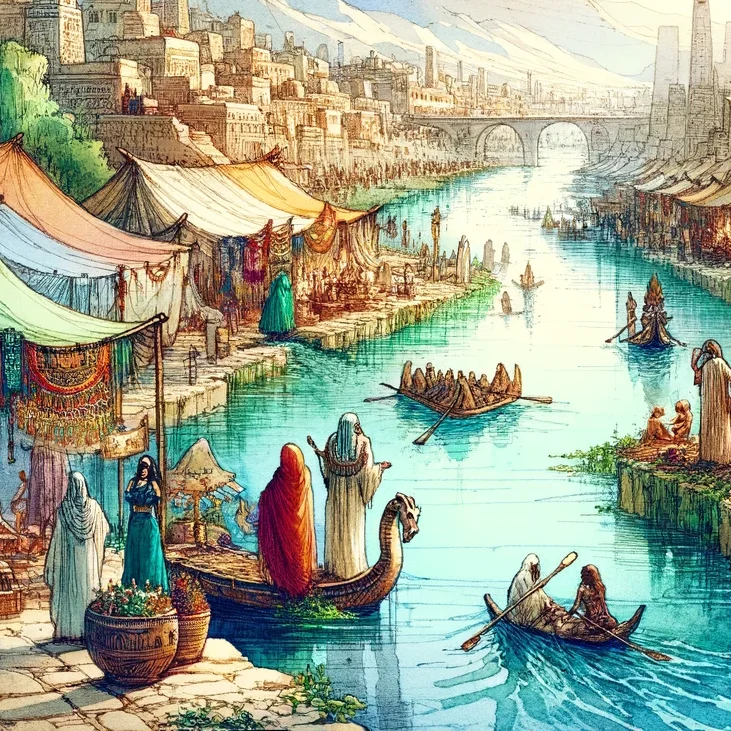
The realm town of Thebestys is a bustling hub of trade and culture, where goods from across the planes are bartered in markets that never seem to sleep. It’s one of the largest settlements in the Ringlands. Here, one can find everything from papyrus scrolls containing lost spells to rare incenses that can soothe even the most troubled souls. Like the skyline, the economy of the burg is also dominated by the looming pyramid of Thoth’s Library. Outside the burg there are reedbeds where papyrus plants are farmed, and on the outskirts of the town the harvested rushes are processed into paper form. You’d better believe the scribes of the library have a never-ending appetite for the stuff; every days wagons loaded with fresh scrolls are carted into the Library, and come out empty. What little isn’t sent into the great pyramid is snapped up by the mages and sages of the burg, who create spell and prayer scrolls which are sold on to merchants and hawkers in the Great Bazaar of the Cage, the Marketplace Eternal, to the travelling merchants of the Cafila, and across the planes.
There’s one other thing to mention about the burg. Apparently there’s some chant going around that Thebestys is some kind of gate town. To where, you ask, confused. To a weird plane called Purgatory, that lies somewhere between the Outlands and Mechanus according to Leir the Explorer. I’ll let you be the judge of that particular bit of chant, cutter…
The Great Library
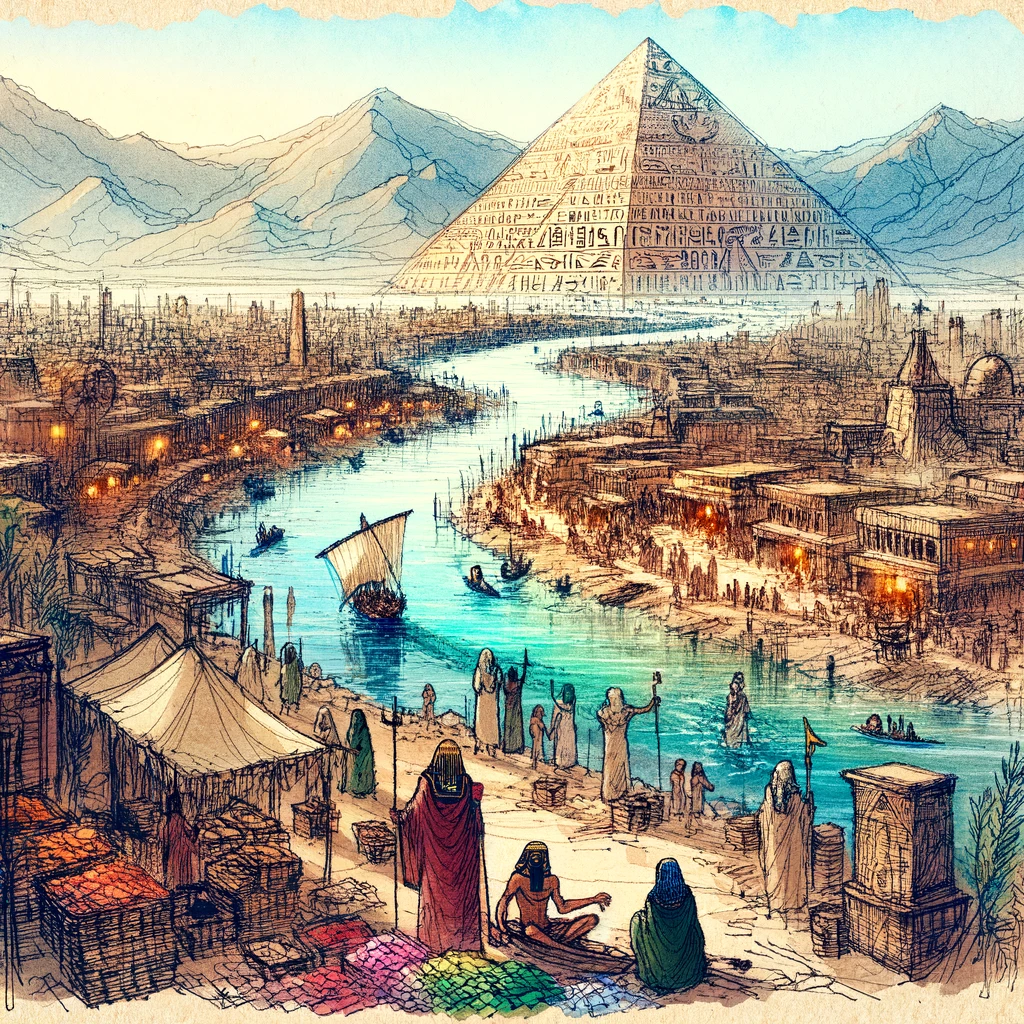
The true seat of Thoth’s power, this colossal pyramid marks the culmination of all of Thoth’s work, and houses a library that is said to contain all the knowledge of the multiverse. The pyramid itself is merely the entrance to the library; the chant goes that the grand hall inside the structure leads to a labyrinth of tunnels in the dry sandy soil below, which connect to extra-dimensional spaces, portals to other planes, or the Akashic Record, depending on who you ask. Why the uncertainty? Well, the thing is, sages and scholars might go in to the library, but precious few of them ever seem to come out again. And those who do are changed; reluctant to do anything so mundane as speak about what they saw. There are whispers that there’s something more sinister going on in there, but that’s probably just jealous talk from the priesthood of Oghma, right?
See Also: Thoth’s Great Liebrary, a cautionary tale
Source: Jon Winter-Holt
Canonical References
- Planescape Campaign Setting; Sigil & Beyond [2e] p17, brief mention of Thoth’s estate
- Sigil and the Outlands [5e] although incredibly this doesn’t reference Thoth by name, referring merely to ‘a god of learning’. Forgive my eye roll.
